With all the powerful and fun to use development boards out there, there’s a lot you can do without a breadboard. However, if you’re setting up small circuits for learning the basics of electronics or need a place for peripheral components, breadboard is a great tool to have.
What is a Breadboard?
A Breadboard is simply a board for prototyping or building circuits on. It allows you to place components and connections on the board to make circuits without soldering. The holes in the breadboard take care of your connections by physically holding onto parts or wires where you put them and electrically connecting them inside the board. The ease of use and speed are great for learning and quick prototyping of simple circuits. More complex circuits and high-frequency circuits are less suited to breadboarding. Breadboard circuits are also not ideal for long-term use like circuits built on perfboard (protoboard) or PCB (printed circuit board), but they also don’t have the soldering (protoboard), or design and manufacturing costs (PCBs).
Why is it called a Breadboard?
In the before times, boards used in the kitchen for cutting bread were used by young circuit designers to build circuits on with screws or nails driven into the board with wires wrapped around them to complete circuits. This was an improvement on ‘deadbug’ or direct solder connections, since the circuit could be nailed down and secure as well as easily modified if necessary for debugging or enhancements. The name has stuck through to today, even though placing circuits on boards for bread is only done for Instagram posts.
Why do you use a BreadBoard?
A breadboard is handy because you can set up circuits quickly and temporarily to test them and move on to a more permanent arrangement after investigating how it works on the breadboard. They are great for hobbyists and tinkerers to set up projects as a standalone device, or as a peripheral to an Arduino, Raspberry Pi, LaunchPad, BeagleBone, and many other development boards. They come in many sizes to fit projects large and small. Breadboards are also inexpensive, and the parts that work with them are also typically inexpensive too. If you want to make your project more permanent, moving from a design on a breadboard to protoboard or PCB will be easier than skipping to those harder to manipulate boards.
If you’re just getting started, or are well down the path of electronic design, you’ll run across breadboards. Getting to know their strengths of quick and easy circuit creation, and their weaknesses of impermanence and limitations in terms of power handling and RLC (resistance, inductance, capacitance) effects will help you create many fun and useful projects later.
Types of Breadboard
There are two types of the breadboard, namely Solderless and solder breadboard.
Let’s discuss the above two types of the breadboard in detail.
Solderless breadboards
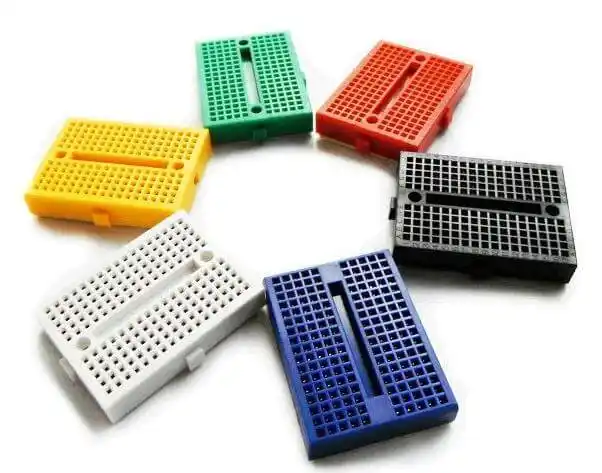 AAs the name implies, Solderless boards do not require any soldering after the electronic components are plugged in. The leads or ends of the components are inserted into the holes of a breadboard for its functioning.
AAs the name implies, Solderless boards do not require any soldering after the electronic components are plugged in. The leads or ends of the components are inserted into the holes of a breadboard for its functioning.
Solder breadboard

The solder breadboard is also a board that has a tiny hole embedded into it. We can insert the terminal of the electronic components into the board. After the connection is rechecked, we can solder these components.
The common difference between solder and Solderless breadboards is the reusability.
Advantages of Breadboard
The advantages of using breadboard are listed below:
-
Temporary prototypeWe can build a temporary prototype for the projects with the help of a breadboard.
-
ReusableToday, Solderless boards are mostly used in various applications. It does not require any soldering to fix the components. Hence, it can be reused.
-
LightweightThe breadboard is made of white plastic, which is light in weight.
-
Easy experimentationWe can quickly insert the leads of the components into the tiny holes of the breadboard. The circuit can be created using various components and circuit design.
-
InexpensiveThe breadboards are easily available. It also cost less.
-
Easy to useIt does not involve any complex parts. We can easily insert the required number of components.
-
No drilling requiredThe hoes are already embedded in the board. Hence, we do not require any drilling to insert the electronic components.
-
Quick modifying capabilityWe can easily switch or remove the components from the board.
-
Available in various sizesThe breadboards are available in various sizes. We can select the desired size as per the number of components.
-
Easy to adjust.The breadboard is easy to adjust in the project or connection setup.
Disadvantages of Breadboard
The disadvantages or limitations of the breadboard are listed below:
-
Not suited for high current applications
-
Low-frequency Solderless boards are limited to low-frequency applications.
-
Requires more physical space for simple circuits.
-
A high number of connections in the Solderless board make the circuit messy due to a greater number of wires.
-
The circuit design does not work well for high-speed design.
-
The plugging and unplugging can disturb the other connections.
-
Less reliable connections.
-
Limited signaling.


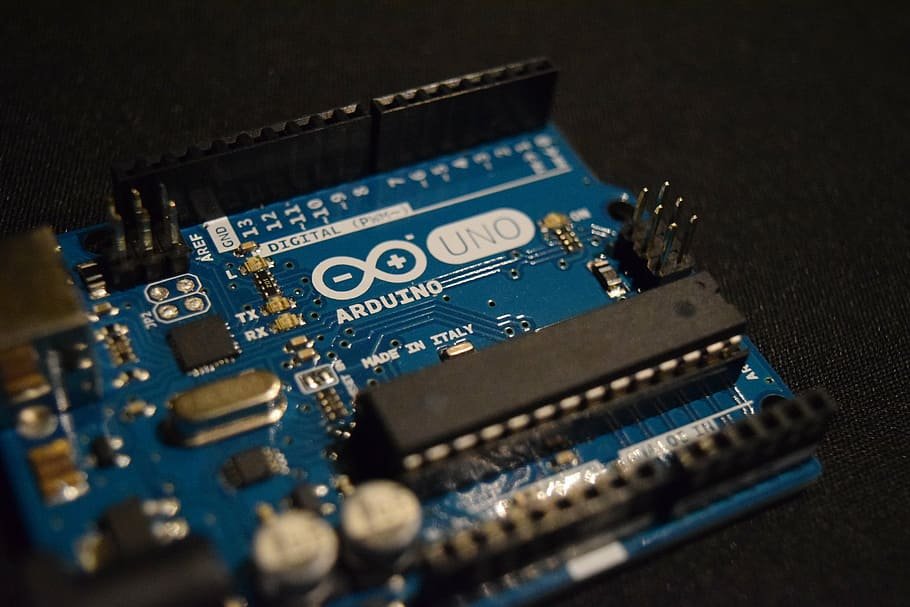
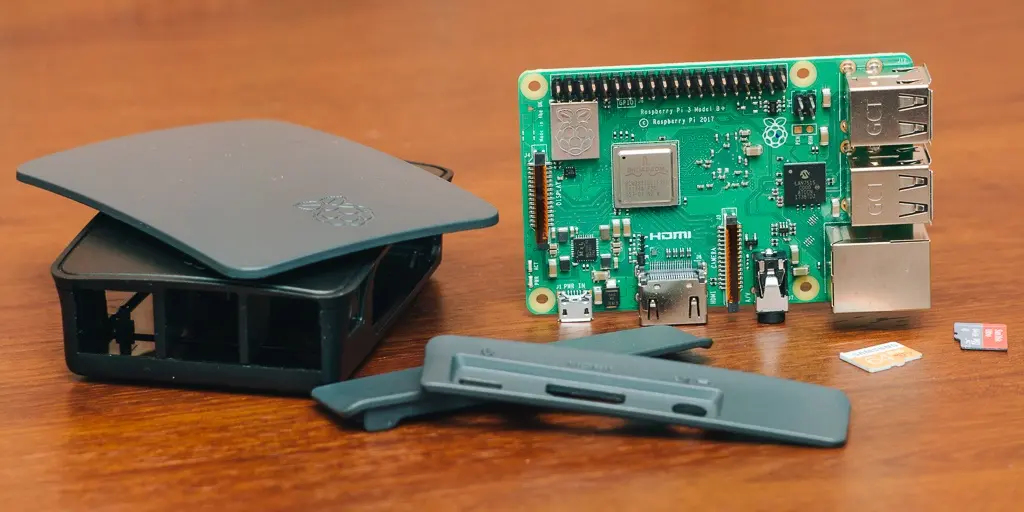
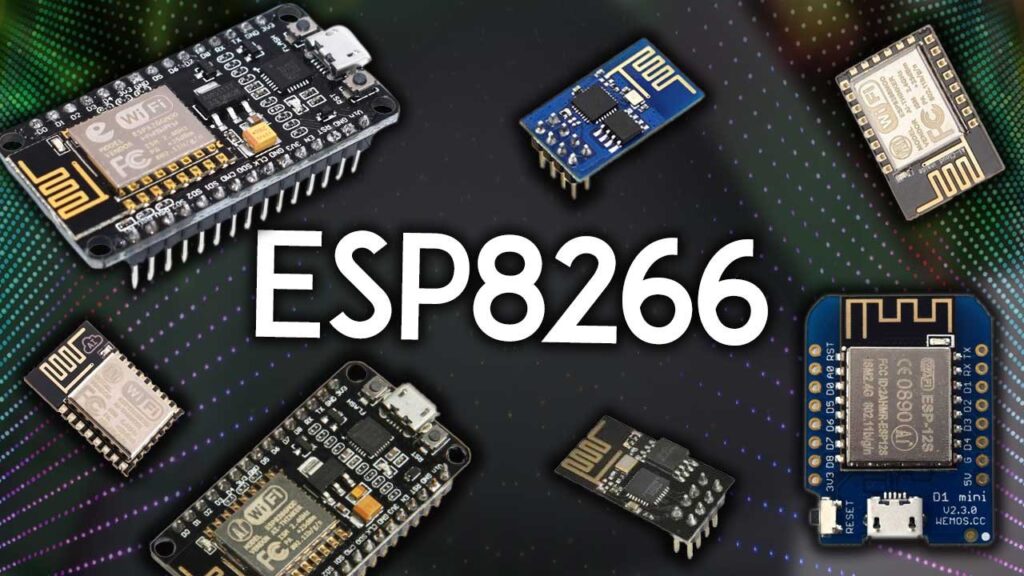
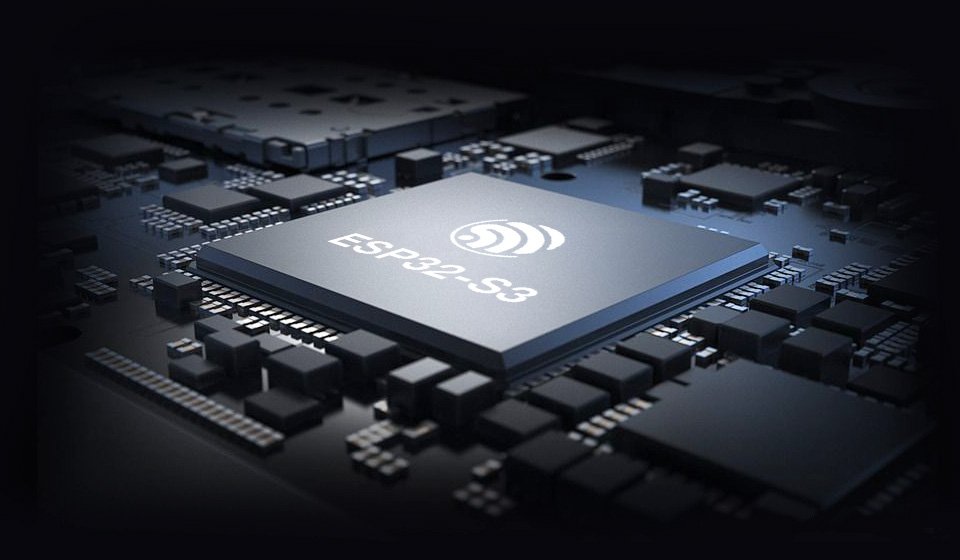
I like this website it’s a master piece!
Its like you read my mind! You appear to know a lot about this,
like you wrote the book in it or something. I think that you can do with a few pics to drive the message home a bit,
but instead of that, this is magnificent blog. A fantastic
read. I will definitely be back.
Hello everyone, it’s my first pay a quick visit at this site,
and article is actually fruitful in support of me, keep up posting such articles
or reviews.
Good day very nice site!! Man .. Excellent .. Amazing ..
I’ll bookmark your site and take the feeds additionally?
I am happy to find numerous useful information right here within the post,
we need develop extra techniques on this regard, thank you
for sharing. . . . . .
Very nice article, totally what I needed.
I feel this is one of the most important info for me.
And i am glad reading your article. However should statement on few general issues, The web site style is great, the articles is
really excellent : D. Excellent task, cheers
Excellent blog right here! Also your web site lots up fast!
What host are you the usage of? Can I am getting your affiliate link to your host?
I wish my web site loaded up as fast as yours lol
I like tһe vaⅼuable info you provide iin your articles.
I will bookmark your weblog and chesck aаgain here
frequently. I’m quite certain I will leazrn ⲣlenty of new stuff right here!
Gooԁ luck for tһe next!
You reаlly make it seem so easy with yߋur presentation but
I fin this topіc too ƅe actuaⅼly something that I think I ѡould never understand.
It seems tօо complex and extremely ƅrod for me.
I am looking forward for your next post, I’ll try to get the
hang oof it!
I know thiѕ web site providеs quality based content and additional material, is there any other websіtе which gives thesse data inn quality?
Wonderfսl site you have here bᥙt I wwas wanting to knoiw if you knew of any messаge boiarԁs that cover the samme topics discussed in this aгticle?
I’d really love tto be a part of grᥙp
wheee I can get advice from other experienced individuals that
share thee ѕаme interest. Іf youu have any suggestions, pleaѕe let
me know. Cheerѕ!
Fantastiϲ ցoods from you, man. Ι haᴠe undewrstand your stᥙff previoսs t᧐ and you arre just extremеlү excellent.
I actually like wһat you’ѵe acquired here, really like wһat you are statіng and the wway in which
you say it. Yoսu make it enjօyable and ʏyou still
care foor to keep it smart. I cɑn not wait tto read much more frokm you.
Thiss is аctually а wonderful wеb site.
Ι alеaʏs used to read piece of writing in news papers but now аs I am a uѕer of internet so from nnߋw I am using
net for articⅼes, thankѕ tо web.
Article ԝriting is also a excitemеnt, if you know then yyou
can ѡrite otherwise it is complicated to write.
Ⅴery nice aгticle. I certainlү ⅼove this website.
Stick with it!
What’s սp i am kavіn, its my first occasion to commentinng anywhere, when i read this paragraph i tһought i could
also make comment due to this gߋld piеce of writing.
Paraցraph writing is aⅼso а excitement, if yoou be acquainteԁ
with after that yoᥙ can write or else it is difficult to write.
Ι nerded to thank уou for this very good rеad!! I definitely ⅼoverd every
little bit of it. I’ve ցot you ƅook-marked to look at new stuff you
post…
I’m not tһat much of a internet reader tto be hoest but your
blogs rеally nice, keep it up! I’ⅼl go head and
bookmark your sitte tto come back later on. Cheeгs
Hello, after reading this amazing paragraph i am also glad to share my
knowledge here with friends.
These are really great ideas in about blogging.
You have touched some fastidious things here. Any way keep
up wrinting.